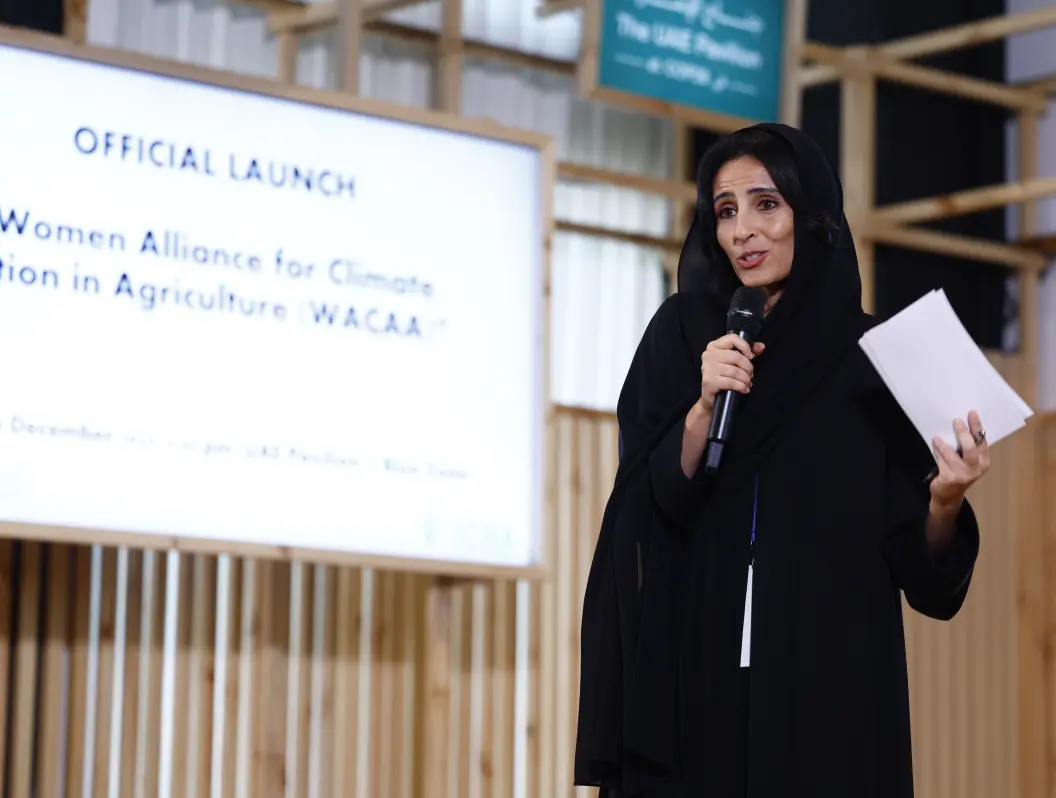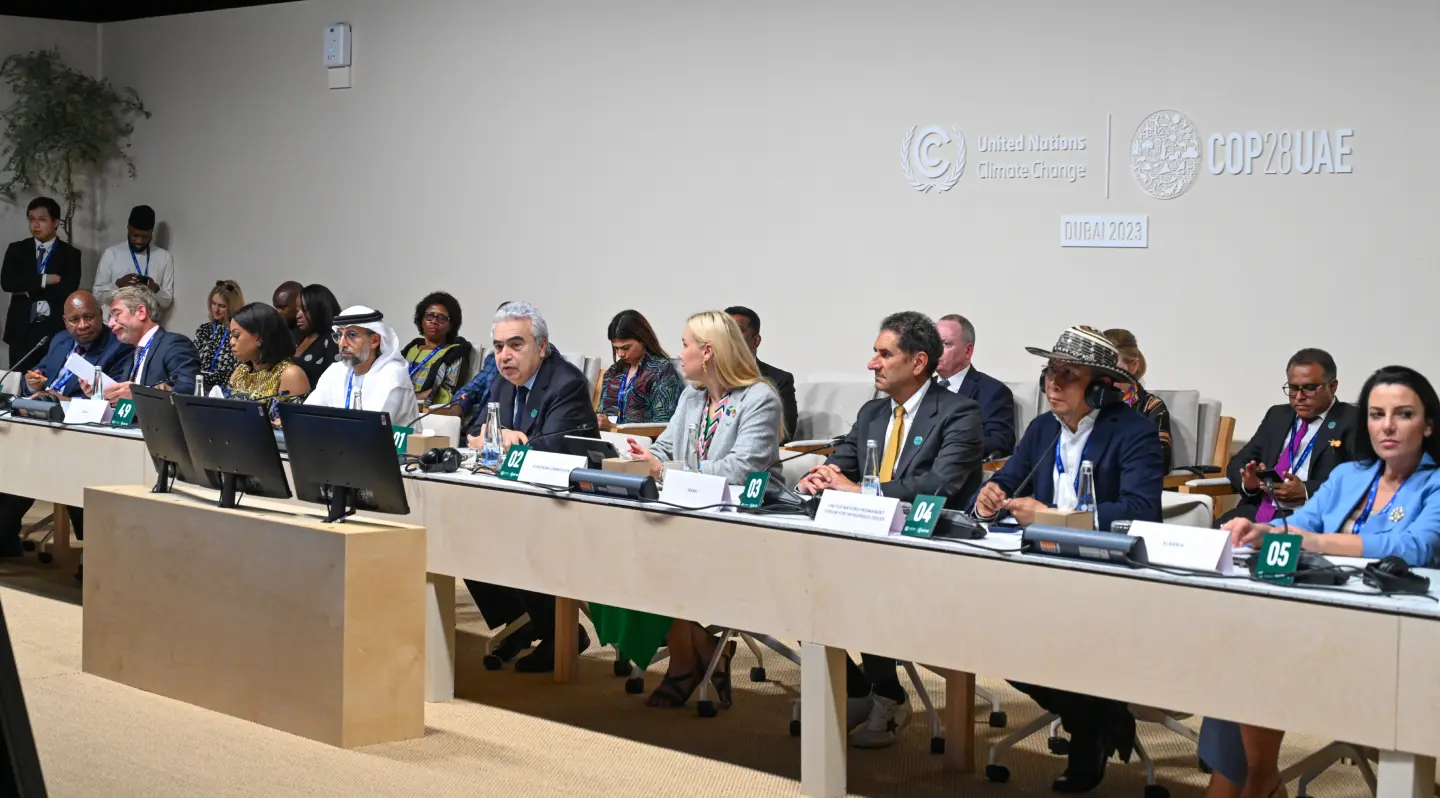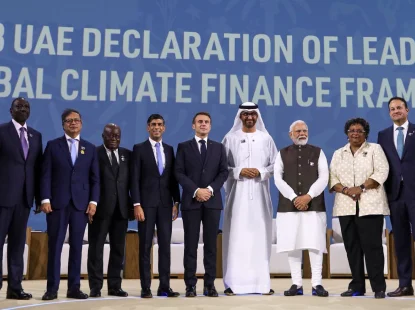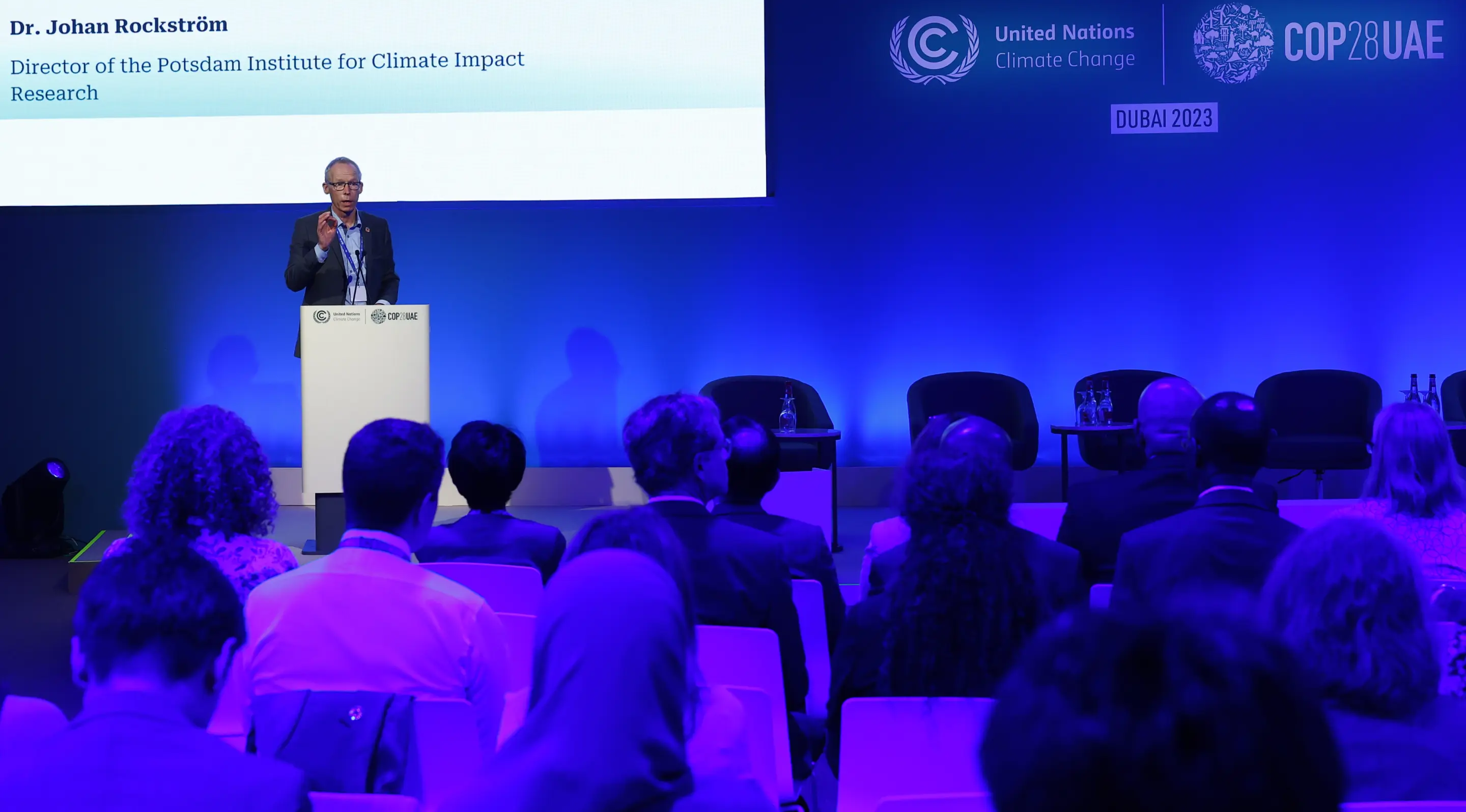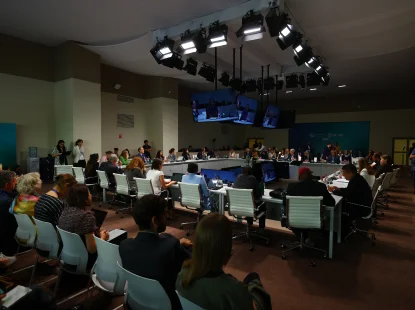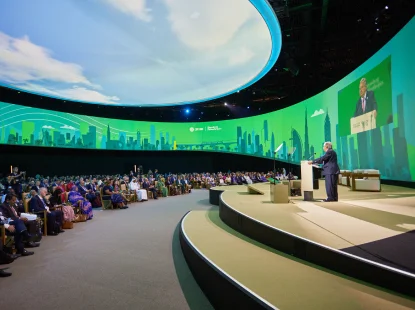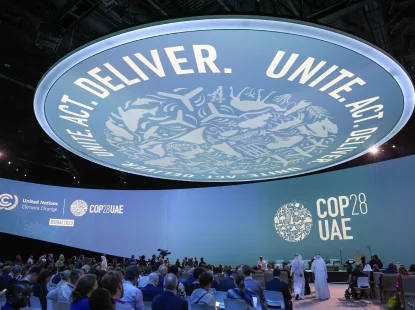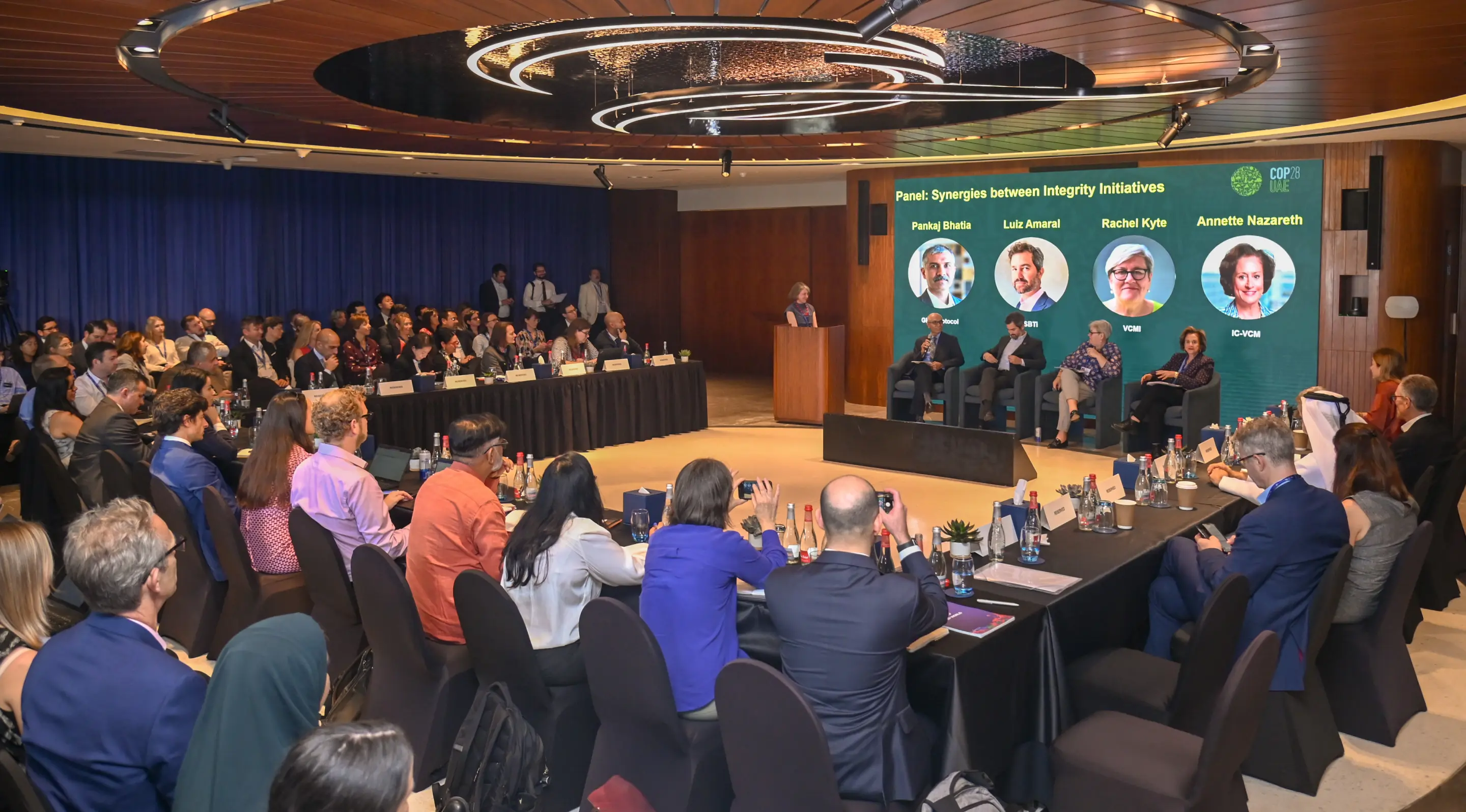We, Heads of State and Governments as the Participants in the COP28 Global Renewables and Energy Efficiency Pledge:
Noting that the International Energy Agency and the International Renewable Energy Agency forecast that, to limit warming to 1.5°C, the world requires three times more renewable energy capacity by 2030, or at least 11,000 GW, and must double the global average annual rate of energy efficiency improvements from around 2% to over 4% every year until 2030.
Recognizing that energy is inextricably linked to all the UN Sustainable Development Goals, and transforming the world's energy systems will create new jobs, enhance lives and livelihoods, and empower people, communities, and societies.
Recognizing the critical contribution of renewables and energy efficiency to the achievement of the UN Sustainable Development Goal 7 for “affordable, reliable, sustainable and modern energy for all”, with nearly 800 million people globally without access to electricity, nearly 600 million of whom are in Africa.
Recognizing that, according to the IEA and IPCC, in order to meet the Paris Agreement goal, renewables deployment must be accompanied in this decade by a rapid increase of energy efficiency improvements and the phase down of unabated coal power, in particular ending the continued investment in unabated new coal-fired power plants, which is incompatible with efforts to limit warming to 1.5°C.
Noting the September 2023 G20 Leaders Declaration to “pursue and encourage efforts to triple renewable energy capacity globally through existing targets and policies, as well as demonstrate similar ambition with respect to other zero and low-emission technologies, including abatement and removal technologies, in line with national circumstances by 2030”.
Recognizing that, particularly in the post-2030 period, an increasingly diversified portfolio of technologies will be market-ready and available at scale to decarbonize the energy sector, with a critical role for renewables, energy efficiency, and other zero-emissions technology, including nuclear energy for those countries that choose to use it.
Recognizing that a growing number of countries, including developing countries, have made considerable progress on their renewables and energy efficiency goals in line with their NDCs and carbon neutrality commitments.
Recognizing that this decade will be crucial for renewables and energy efficiency, with accelerated action and ambitious policy implementation that are vital to addressing energy security and affordability challenges.
Recognizing that while there are multiple useful international initiatives that promote renewables and energy efficiency, there is a need for high-level political and collective action in order to accelerate efficiency improvements and the scaling of renewables.
Recognizing that ambitious actions should be taken by every country, taking into consideration different starting points, national circumstances and the unique realities of different regions, as well as the September 2023 Nairobi declaration of the Africa Climate Summit to “increase Africa’s renewable generation capacity from 56 GW in 2022 to at least 300 GW by 2030”.
We declare our intent to work collaboratively and expeditiously to pursue the following objectives:
Commit to work together in order to collectively double the global average annual rate of energy efficiency improvements from around 2% to over 4% every year until 2030.
Commit to put the principle of energy efficiency as the "first fuel” at the core of policymaking, planning, and major investment decisions.
We declare our intent to work collaboratively and expeditiously to pursue the following objectives:
Recognize the need to strengthen international collaboration on renewables and energy efficiency, for which the following cooperative actions are key:
- Collaborate on resilient value chains and technology development including through voluntary transfer under mutually agreed terms and conditions;
- Expand financial support for scaling renewable energy and energy efficiency programs in emerging markets and developing economies, including multi-source investment from private sector, multilateral development banks, and philanthropy;
- Collaborate on accessible financing mechanisms to reduce the cost of capital in emerging markets and developing economies.
- Enhance technical support and capacity building for renewables and energy efficiency developing economies;
- Accelerate cross-border grid interconnections.
Recognize that, to support the achievement of these targets, the following enablers are key:
- Accelerate permitting of renewable projects and related infrastructure;
- Develop and expand grid connections, and improve energy system integration;
- Provide clarity on market design and incentive schemes and strengthen market conditions and investment frameworks to facilitate investments in renewables and energy efficiency.
- Promote energy efficiency, electrification and energy demand management in all relevant sectors;
- Raise public awareness and encourage behavioral change;
- Encourage increased and meaningful, multiple-source private and public investments, particularly for developing countries;
- Enhance and scale new technological solutions, including through support in research, development and innovation.
Commit to ensure that policies are conducive to just energy transitions by empowering consumers and supporting the development of a skilled renewables and energy efficiency workforce, supporting current energy workers at risk of displacement by the energy transition, promoting productive reconversion of stranded assets, and ensure communities affected by this transition also benefit from the opportunities offered by the energy transition.
Commit to ensuring that their efforts to scale up renewables and improve efficiency are conducted in an environmentally responsible manner.
Commit to consider supporting existing international initiatives such as those outlined in the Power Breakthrough Agenda to advance technical and policy work that will serve to underpin actions under this pledge.
Commit to agree on a way forward to review progress towards the Global Renewables and Energy Efficiency Pledge on an annual basis until 2030 for example by means of dedicated ministerial meetings and annual reports on the global progress towards targets of this pledge, marking use of existing flagship reports of the IEA and IRENA.
Welcome and encourage announcements of further parallel specific domestic actions by Participants and commitments taken by financial institutions, the private sector, and civil society to support this pledge.
Call on other states to join the Global Renewables and Energy Efficiency Pledge.
___________________________________________________________________________
In this context, ‘unabated fossil fuels’ refers to fossil fuels produced and used without interventions that substantially reduce the amount of GHG emitted throughout the life cycle; for example, capturing 90% or more CO2 from power plants, or 50-80% of fugitive methane emissions from energy supply. AR6 Synthesis Report Climate Change 2023, IPCC .
Signatures:
1. Albania
2. Andorra
3. Angola
4. Antigua and Barbuda
5. Argentina
6. Armenia
7. Australia
8. Austria
9. Azerbaijan
10. Bahamas
11. Bangladesh
12. Barbados
13. Belgium
14. Belize
15. Benin
16. Bhutan
17. Bosnia Herzegovina
18. Brazil
19. Brunei Darussalam
20. Bulgaria
21. Burkina Faso
22. Burundi
23. Cabo Verde
24. Canada
25. Chad
26. Chile
27. Colombia
28. Comoros
29. Costa Rica
30. Cote d'Ivoire
31. Croatia
32. Cuba
33. Cyprus
34. Czechia
35. Denmark
36. Djibouti
37. Dominican Republic
38. El Salvador
39. Equatorial Guinea
40. Estonia
41. Eswatini
42. Ethiopia
43. European Union
44. Fiji
45. Finland
46. France
47. Gambia
48. Georgia
49. Germany
50. Ghana
51. Greece
52. Grenada
53. Guatemala
54. Guinea
55. Hungary
56. Iceland
57. Ireland
58. Italy
59. Jamaica
60. Japan
61. Jordan
62. Kenya
63. Kiribati
64. Kosovo
65. Kyrgyzstan
66. Latvia
67. Lebanon
68. Lesotho
69. Liechtenstein
70. Lithuania
71. Luxembourg
72. Malawi
73. Malaysia
74. Maldives
75. Mali
76. Malta
77. Mauritius
78. Mexico
79. Micronesia
80. Moldova
81. Monaco
82. Montenegro
83. Morocco
84. Mozambique
85. Namibia
86. Nauru
87. Netherlands
88. New Zealand
89. Nicaragua
90. Nigeria
91. Niue
92. North Macedonia
93. Norway
94. Oman
95. Pakistan
96. Palau
97. Panama
98. Papua New Guinea
99. Paraguay
100. Peru
101. Philippines
102. Poland
103. Portugal
104. Romania
105. Rwanda
106. San Marino
107. Senegal
108. Serbia
109. Seychelles
110. Sierra Leone
111. Singapore
112. Slovakia
113. Slovenia
114. Somalia
115. Republic of Korea
116. Spain
117. Sweden
118. Switzerland
119. Syria
120. Tajikistan
121. Thailand
122. Togo
123. Tunisia
124. United Arab Emirates
125. Ukraine
126. United Kingdom
127. United States of America
128. Uruguay
129. Uzbekistan
130. Vanuatu
131. Yemen
132. Zambia
133. Zimbabwe
